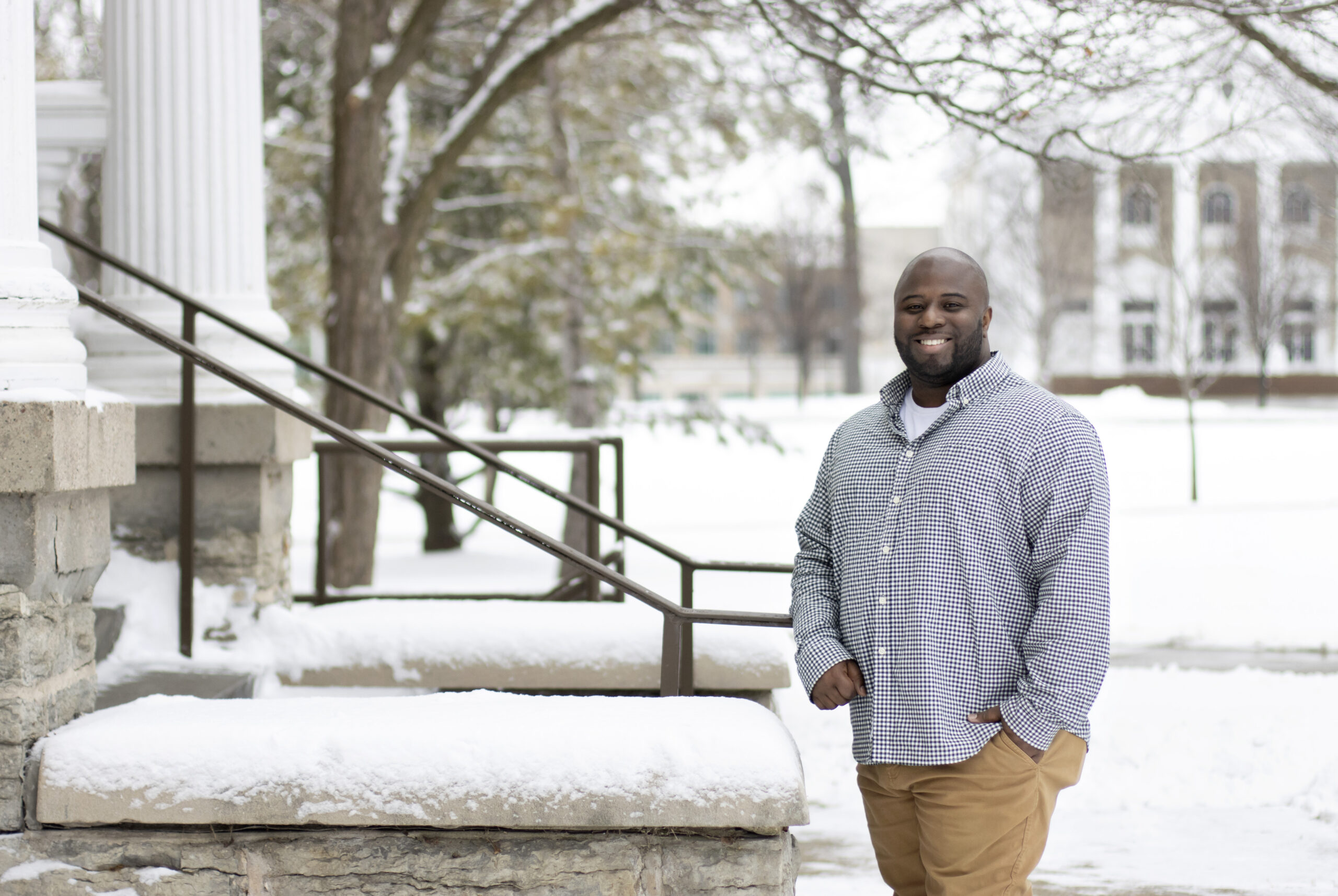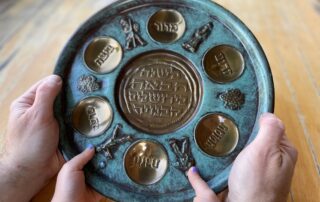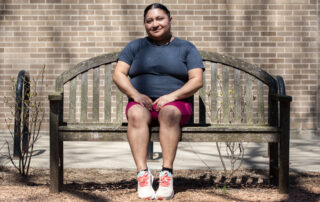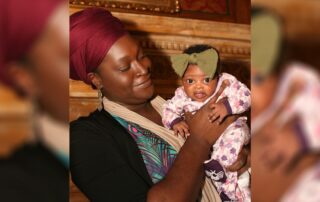What’s one of the best ways to combat hate? For Jesús Gregorio Smith of Appleton, it’s to push back with love.
He shares his story as part of the “Home Is Here” project, which amplifies the voices of the growing number of Black, Asian, Native American and Latinx residents who call northeastern Wisconsin home. The project is part of the NEW News Lab – a local news collaboration in northeastern Wisconsin made up of six news organizations.
==
I saw the sign up on Richmond Street in downtown Appleton, and I couldn’t believe my eyes. It was just a sign flashing the f-word, the one that rhymes with “maggots.” It was displayed across a business sign so everyone driving down the road could see it like it was nothing. All I could think about was how this could be possible? Those poor queer kids who could be driving down the road, who already have a hard time with family or within themselves being gay, or bi or trans. What happens when they see this sign spewing so much hate?
I had to do something.
I have experienced my fair share of hatred and bigotry throughout my life. I was born and raised in the little old town of El Paso, Texas. My father, Johnny Smith, is an African American man who was born in the 1940s, during legal segregation. He served in Vietnam and was a home service nurse most of his life.
While dad was stationed at Fort Bliss, he’d travel to Juarez, Mexico with his fellow soldiers for drinks and fun nights. It’s there he fell in love with my mother, Sonia Smith.
Back then, interracial marriages were not legal across the U.S. But once my parents were married, my mother became a legal U.S. resident and they had five mixed-race, Black and Latino, children.
I’m the youngest of the five. I had the luxury and honor of having two cultural backgrounds and influences in my life. But that luxury also had costs. I recall the first time I was ever called the N-word, and it was by Mexican folks. I thought to myself, “Don’t we all have it bad enough? Why are we picking on each other?”
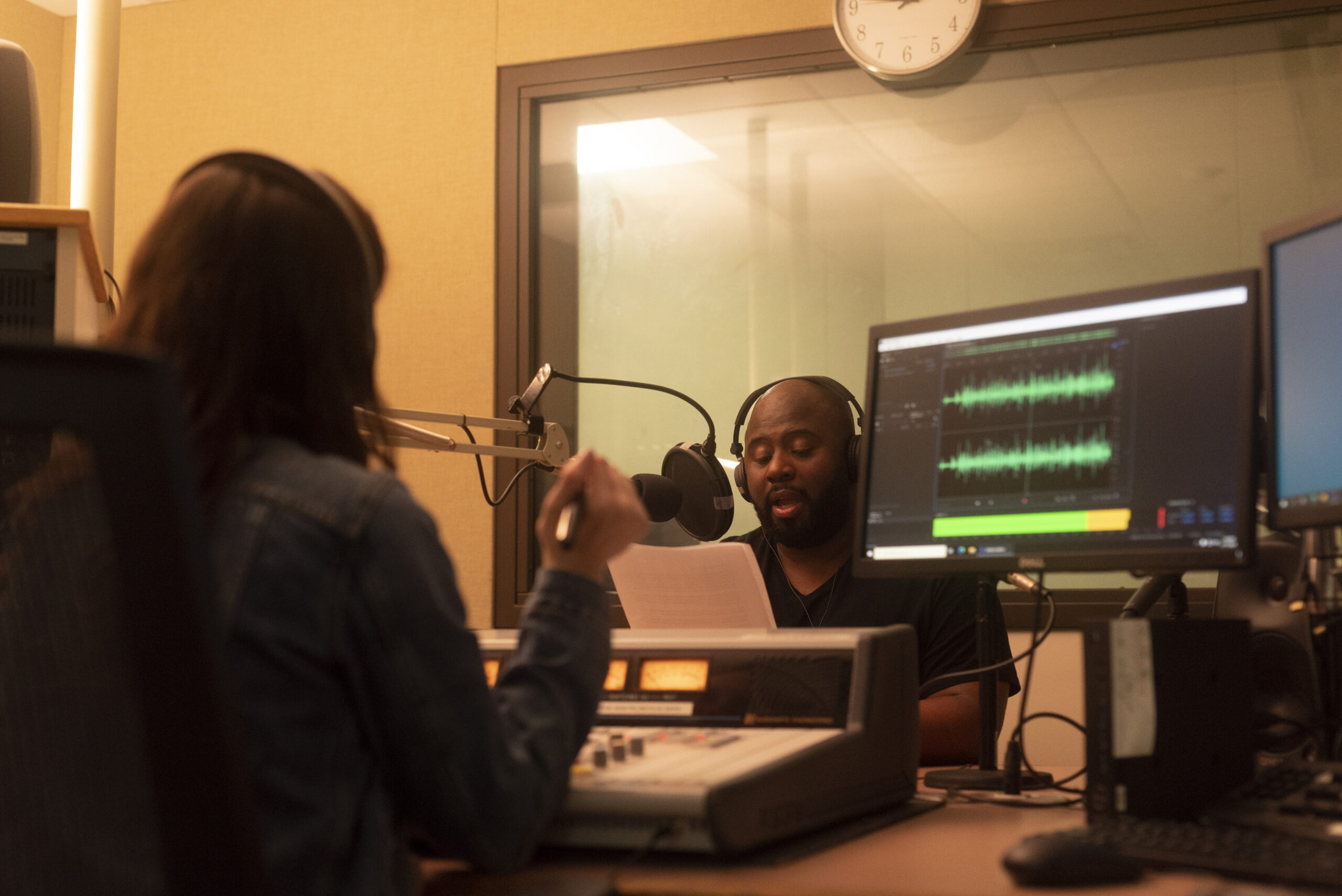
Jesús Gregorio Smith records his story for the “Home Is Here” project with Wisconsin Public Radio’s Maureen McCollum in the WPR Green Bay studios on May 17, 2023. (Photo by Laura Henderson)
My father instilled a particular vision of Black masculinity that was meant to protect my brothers and me in the world. He stressed that I needed to get a good job — “in computers” — in order to be successful.
I’ll never forget the time my mother gave me this serious talk in first grade, because she was embarrassed with how feminine I was as a child. In fact, the first person to ever call me the F-word was my mother. It was a painful moment in my life. Black boys and men were expected to uphold a certain kind of masculinity.
As I got older, I hid my gayness and only pursued paths that would make my family proud, keep me hidden and keep the comments about me to a minimum.
But college didn’t lead to a career in computers. Instead, I faced my fears and embraced my identity. I began empowering fellow members of the queer/LGBTQIA community. I organized protests against inequality. Eventually, I got my Ph. D. in Sociology, with a focus on race, sexuality and masculinity. And that’s what brought me to Wisconsin…a job at Appleton’s Lawrence University as an Assistant Professor of Ethnic Studies.
My father pressured me for so long to go down a particular career path. Instead, I embraced what could hurt me and turned it into a successful life. My father is proud that I listened to my heart. Similarly, I have forgiven my mother for the hurt she caused with the words she used against me. She sees that the embrace of my Afro-Latinx roots along with my queer identity has made me a complete and happy person.
Which brings me back to that homophobic sign I saw in downtown Appleton. I didn’t let the hate deter me.
Rapper Eminem has this song “The Way I Am” in which he says, “I am whatever you say I am.” And the idea is you don’t try to change people’s minds, you just let them keep thinking whatever it is they want about you, and you embrace yourself to the fullest. They hate to see you happy and thriving when they want to see you hurt and in pain.
So, when I decided to protest under the sign, I gayed it up even more to be exactly what the sign said I was. I put on a purple wig, a rainbow shirt, white high heels and danced around to “Born This Way” by Lady Gaga. I filmed a silly video and took a photo. The photo went viral on social media.
Not too long after, numerous Appleton residents showed up to fight against the hate, resulting in the sign coming down!
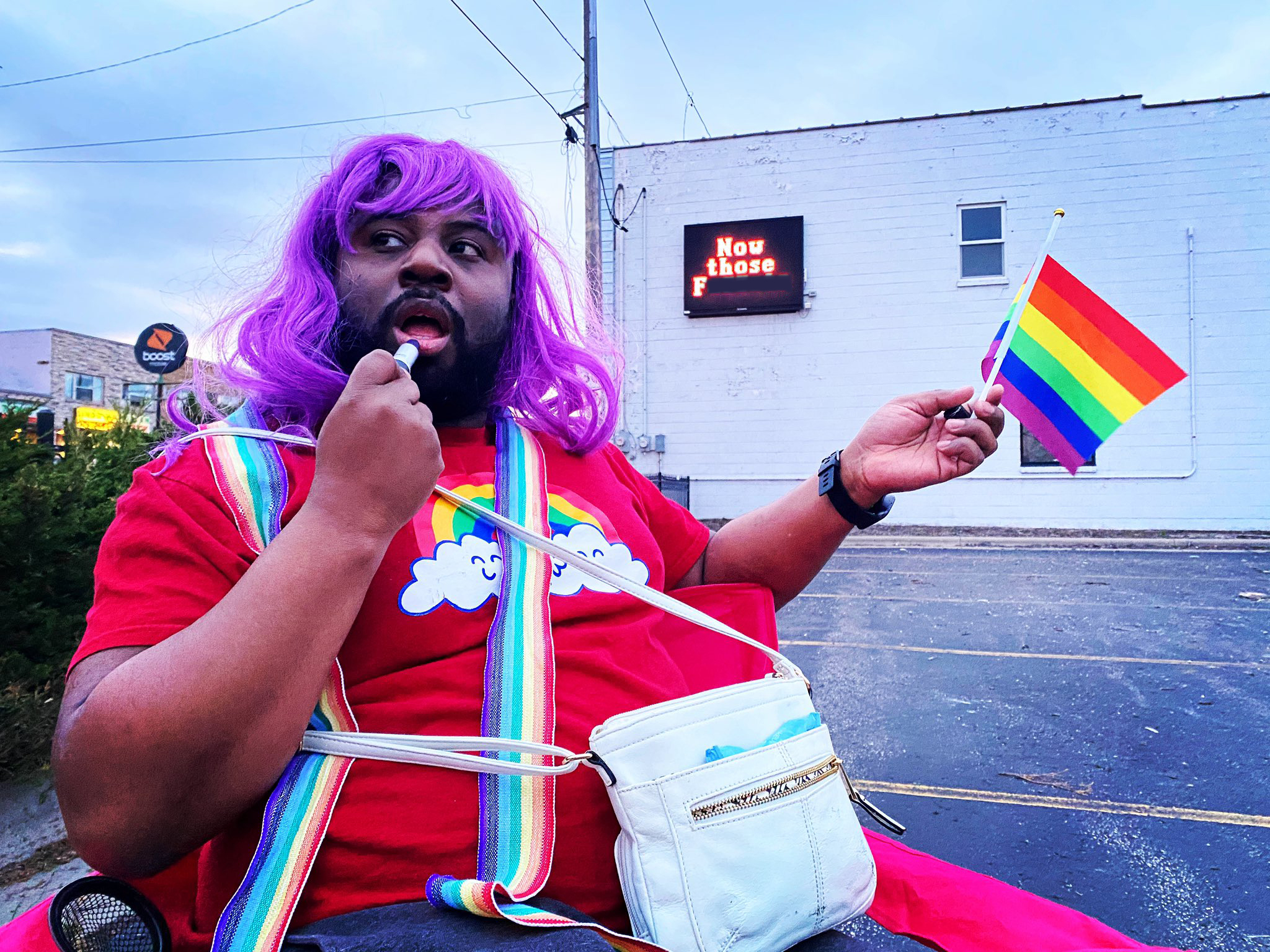
Jesús Gregorio Smith in front of an Appleton, Wisconsin business’s sign displaying hate speech in April 2021. The image went viral on Facebook and Instagram and helped Smith raise money for a local organization. The homophobic slur has been blurred out by WPR staff. (Courtesy of Jesús Gregorio Smith)
When I was chosen by the Sexual Assault Crisis Center to represent Appleton in the big fundraiser Shall We Dance, I took that viral image, put it on a shirt and sold it. I sold almost a hundred shirts and, in the end, raised $15,000 for the Sexual Assault Crisis Center.
That is how you turn that hate into love.
Through the process of finding oneself, embracing oneself and living as one’s authentic self, one can counter painful experiences and turn them into something different. I tried to hide myself from pain, but when I bravely faced it, I overcame it. It isn’t easy, but I think we deserve to see a different world. Determining your own path, despite what others say, can help you break out of molds that confine you.
I eventually embraced who I was, and made a huge difference in people’s lives, as well as my own.
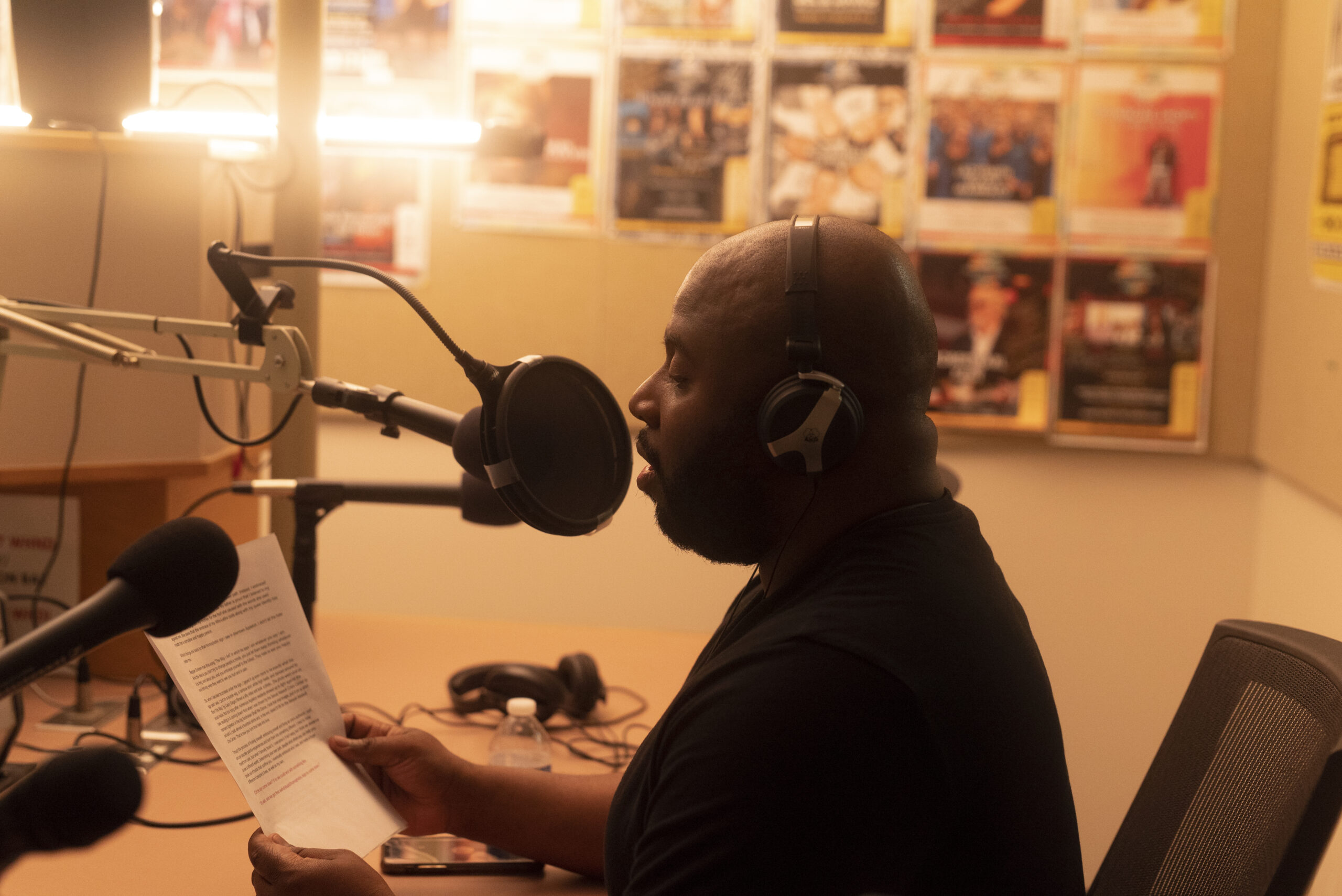
Jesús Gregorio Smith talks about his journey to becoming a professor and standing up for the LGBTQA community. (Photo by Laura Henderson)
Jesús Gregorio Smith is an associate professor of ethnic studies at Lawrence University and lives in Appleton, Wisconsin.
==
MUSIC: “Beautiful” by Christina Aguilera
“Born This Way” by Lady Gaga
